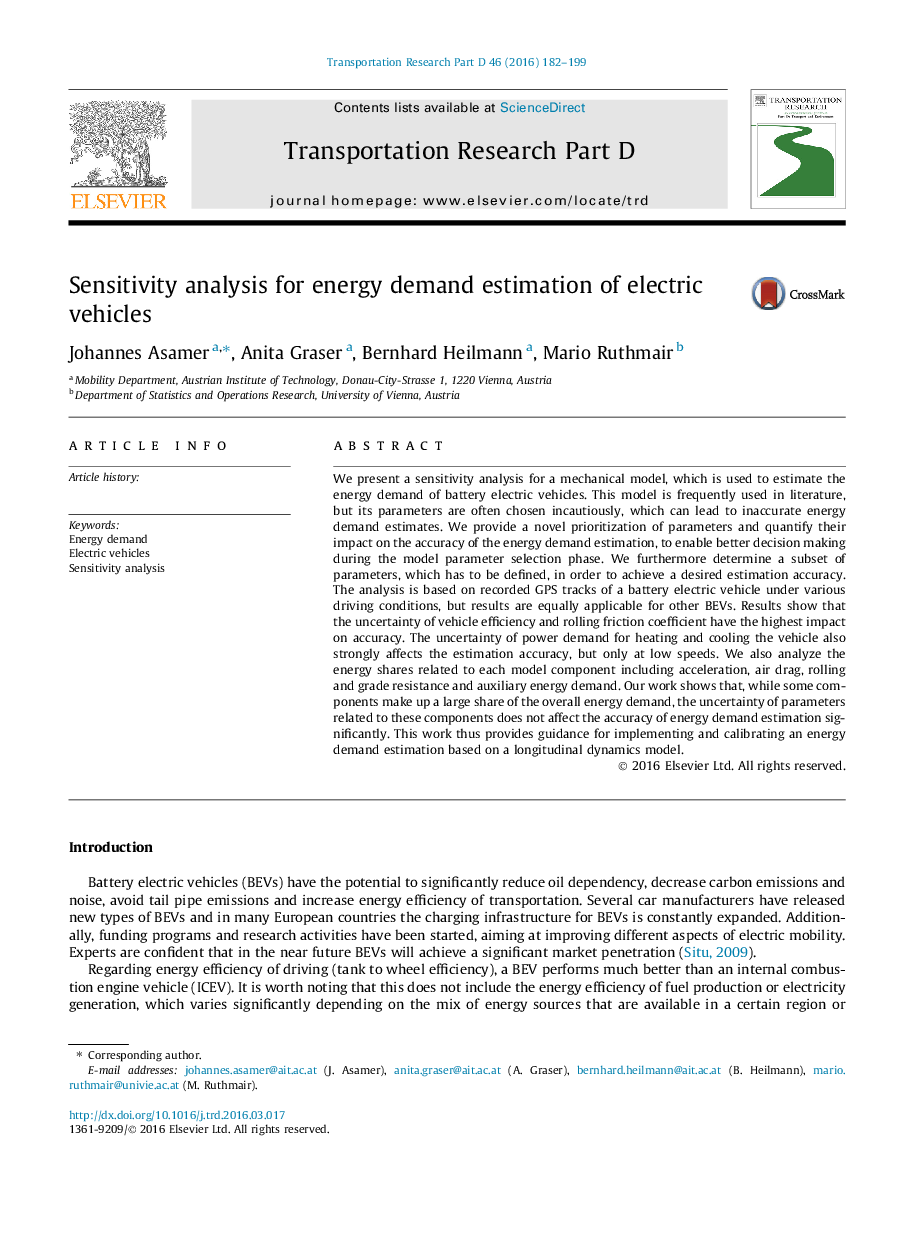| Article ID | Journal | Published Year | Pages | File Type |
|---|---|---|---|---|
| 7499655 | Transportation Research Part D: Transport and Environment | 2016 | 18 Pages |
Abstract
We present a sensitivity analysis for a mechanical model, which is used to estimate the energy demand of battery electric vehicles. This model is frequently used in literature, but its parameters are often chosen incautiously, which can lead to inaccurate energy demand estimates. We provide a novel prioritization of parameters and quantify their impact on the accuracy of the energy demand estimation, to enable better decision making during the model parameter selection phase. We furthermore determine a subset of parameters, which has to be defined, in order to achieve a desired estimation accuracy. The analysis is based on recorded GPS tracks of a battery electric vehicle under various driving conditions, but results are equally applicable for other BEVs. Results show that the uncertainty of vehicle efficiency and rolling friction coefficient have the highest impact on accuracy. The uncertainty of power demand for heating and cooling the vehicle also strongly affects the estimation accuracy, but only at low speeds. We also analyze the energy shares related to each model component including acceleration, air drag, rolling and grade resistance and auxiliary energy demand. Our work shows that, while some components make up a large share of the overall energy demand, the uncertainty of parameters related to these components does not affect the accuracy of energy demand estimation significantly. This work thus provides guidance for implementing and calibrating an energy demand estimation based on a longitudinal dynamics model.
Related Topics
Life Sciences
Environmental Science
Environmental Science (General)
Authors
Johannes Asamer, Anita Graser, Bernhard Heilmann, Mario Ruthmair,
